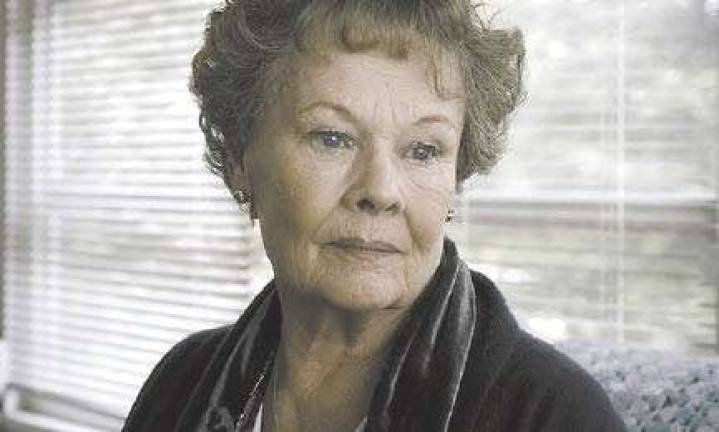P.C. Ping Pong

Philomena sentimentalizes motherhood and chips away at religion
Philomena reveals its cynicism when BBC political journalist Martin Sixsmith (Steve Coogan) initially refuses to take on an assignment: "Human interest stories are for weak-minded, vulgar, ignorant people" says the supercilious Brit professional (a Coogan specialty but worn out after 24 Hour Party People). He invites a viewer's temporary superiority to a story that, as the film proceeds, panders to audiences as if they were weak-minded, vulgar and ignorant.
Sure enough, Sixsmith lowers himself to interview Philomena Lee (Judi Dench), a common Irish lady searching for the child she gave up after a teenage pregnancy spent at the Roscrea Abbey for wayward girls. Her quest takes them both on a "heartwarming" journey to political correctness. The film tours pre-Feminist oppression and indicts Catholic Church restrictions before arriving at its predetermined destination: a harangue on sexual tolerance regarding Philomena's gay son which includes the mushiest, most calculating AIDS exploitation since Brokeback Mountain.
No wonder the trite, wheedling Philomena got an Oscar nomination for Best Picture; distributor Harvey Weinstein hit the bleeding heart bullseye that his presentation of Lee Daniels' The Butler missed. Sixsmith's condescension toward the old Irish mum pretends learning morality from one's lesser. Turns out Philomena, still a devout Catholic, is wise about the world: "When I saw the photo of him in his dungarees there was no doubt in my mind" she says of her long-lost child's sexuality. This joke pushes Irony: a mother's unconditional love despite her own deprivations. She's plays both a sage-fool ("I didn't know I had a clitoris") and a straight-man to Sixsmith's sophisticated Liberal retorts ("Effing Catholics!").
The journey from England to the American political landscape is a propaganda tour ("Being gay was frowned on in the Republican Party"). The entire search and story could have been quickly resolved by the Internet which it evidently was in real life. (The mother's home movie-style fantasies about her child also seem dated and full of sissy stereotypes.)
Sixsmith and Philomena's badinage is a shameless game of elite vs. vulgar ping-pong--a comedy team's version of the way mainstream media inflicts its ideology upon the masses yet carefully sentimentalizes common folk as virtuous and pure. Director Stephen Frears (working from Coogan's script) sets up points with Mike Nichols' slickness: by assuming correct attitudes and deriding others: posing the church and the Republican party as villains and snide, Liberal journos as heroes. Esssentially, it's another movie chipping away at religion.
In the final Roscrea Abbey scene, where Sixsmith and Philomena confront the still-cruel sisters at the Abbey, Frears goes through the motions, displaying a convictionlesss lack of emphasis on the scene's beats when Philomena say "Forgiveness. It's hard for me." Frears stresses Coogan's confusion and contempt not Dench's faith and self-realization. Upon learning the whereabouts of her son, Frears cuts to a microtelescopic super close-up of Dench crying--blatant, shameless and Nicholsian.
Follow American White on Twitter at 3xchair